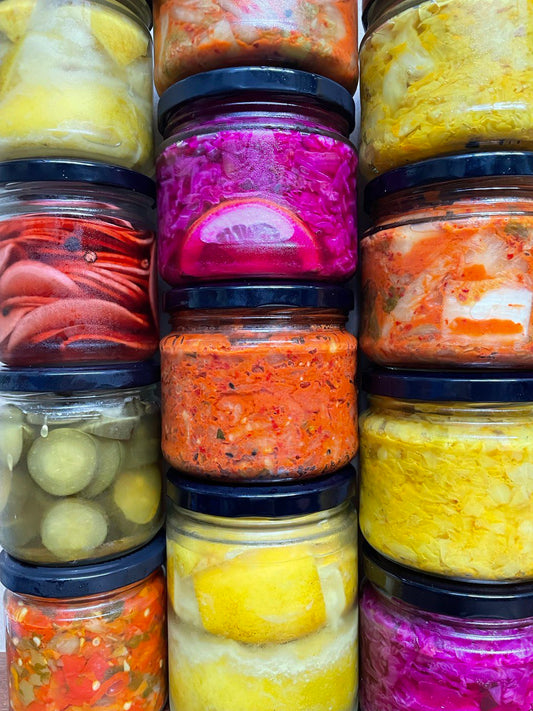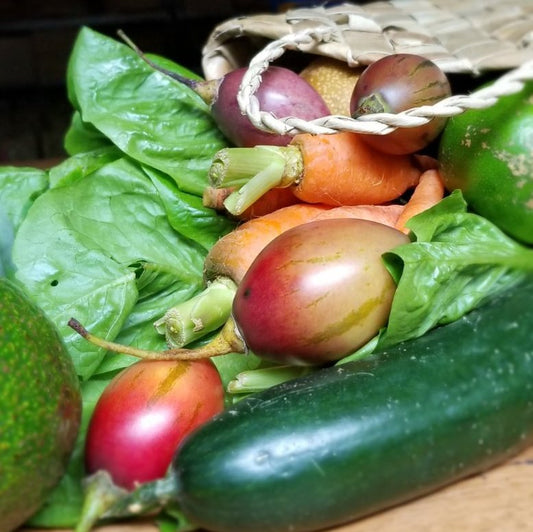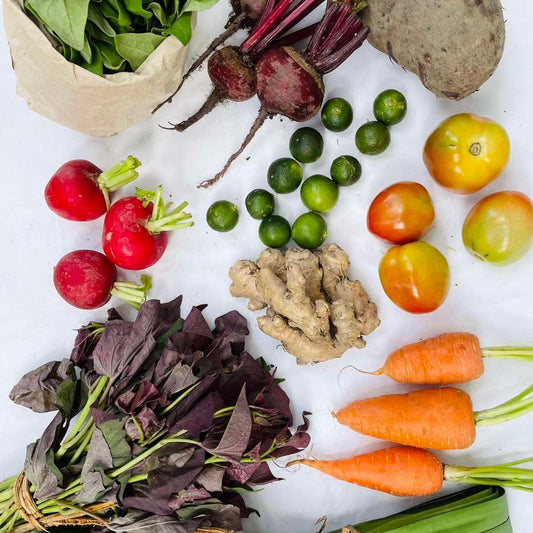On this historic day of action, our community of food citizens are proud and grateful to stand in the legacy of the 400 Filipino farmers and activists who uprooted the genetically modified golden rice from our land. Who are we? We are Good Food Community. We are consumers: mothers, titas, sisters, brothers, fathers wanting our families and our loved ones to grow happy and healthy, free from disease or hunger. We are Filipinos: for whom food is central and transformational in any relationship as evidenced by its multiple relational conjugations in our language: Kain, makikain, magsikain, napakain, nagkainan, nagsikain, ikain. We are co-producers: we believe food is a right of every Filipino and we uphold that responsibility in our everyday lives.
Our farmers were not hungry nor malnourished because they lacked “better” varieties. They were poor because of economic policies that favored commodification and chemical inputs.
For thirteen years we have grown a solidarity economy model we call pamayanihan. It is as it sounds: bayanihan for food production. This work of solidarity has given us the opportunity to understand hunger and its true causes, farmers’ struggles and the solutions they call for. Our farmers were not hungry nor malnourished because they lacked “better” varieties. They were poor because of economic policies that favored commodification and chemical inputs. When all one could sell was chemical-laden crops for prices that farmers had no control over, of course farmers would go hungry. Every year, without regulation, without support, our farmers would go hungry when the prices fell below the cost of production. Our farmers were not born poor, they were made poor just as their land was made poor by all the salts that chemical-based farming entails. Conversely, they’re not asking for GMO’s like Golden Rice and BT Eggplant, they are asking for basic support like rain shelters, postharvest facilities and access to the market. Within the first year of resourcing our farmers with these basic livelihood needs, they were freed from hunger. Their fields, once threatened by the spectre of crops they could not eat, or rivers that could be poisoned by pesticides or nitrates, slowly became diverse organic gardens of food for their family all year round. Who would suffer from Vitamin A deficiency when malunggay, kamote and kalabasa were in perennial abundance? Malunggay with 19 times more beta carotene than Golden Rice, kamote with 56 times more beta carotene and kalabasa with 13 times more beta carotene than golden rice, microgram per gram. Can you understand how ludicrous this GMO proposal seems for anyone who has spent any actual time talking to farmers about hunger?
Through our work of solidarity we learn so much from our farmers and our partners like Masipag. We learned of the incredible diversity of heritage crops we have that never make it to our markets in the city. Heritage crops that speak of traditions and lifeworlds that our friends in the city hunger for. We learned of delicious vegetables and varieties that our farmers’ parents used to grow back when they could feed their children and profitably sell the surplus in local territorial markets. Thin-skinned kamatis na baligtad, saging bulkan, amti. Even okra, talong, cassava, kalabasa– many of us are just amazed at how sweet and alive food can taste when grown in living soil and delivered soon after harvest. We learned of seed varieties that could withstand drought, flood, saltwater developed by farmers– and we learned that none of these exist as manufactured products but as an ever evolving system of genetic biodiversity AND practice of seed saving and stewardship by our farmers. There are two points I want to share about this. The first is that so much richness and diversity is already threatened by market pressures to monoculture and commodification. The second point is that these pockets of agrobiodiversity are kept alive and accessible to us by farmers. No farmers, no food. No farmers, no diversity. With this knowledge of what’s at stake, how can one afford to be cavalier about genetic pollution? Who gets to decide what is grown in our fields? Corporations or people?
So much richness and diversity is already threatened by market pressures to monoculture and commodification...[and] these pockets of agrobiodiversity are kept alive and accessible to us by farmers
Over the course of our work, we have met many people. Loved ones suffering from diabetes, heart disease, cancer. City folk with unexplainable skin asthma or gut-related disease. They were all looking for clean, safe and nutritious food. At the beginning we didn’t understand fully the relief people felt when they ate our farmer’s produce. I mean, masarap naman talaga. But people would be so grateful— my skin asthma is cured, my mind feels clear, I feel lighter. None of us knows for sure, but this echoes so much of the latest studies on health: that our health is highly dependent on living ecology of one’s gut which in turn is dependent on the living ecology and diversity of the soil in which it is grown. We are ecologies. Food is medicine. When our land and soil is threatened, our bodies are threatened. Our health is threatened. The fight to protect our land is a fight to protect our lives.
We are ecologies. Food is medicine. When our land and soil is threatened, our bodies are threatened. Our health is threatened. The fight to protect our land is a fight to protect our lives.
This is a historic day of action and a moment that humbles us and situates us in our work. None of the freedoms we enjoy today would be possible without this enduring spirit of self-determination, embodied by the collective action of civil society. It is the political faith that the struggle for justice is worthwhile. That its risks are motivated by love, that courage is animated by a long history of countless every day acts of refusal. In a globalized world of rapidly atomized and isolated individuals, we in good food community, continue to uproot the alienation in our cities and cultivate a solidarity based on food sovereignty. What are our calls to action? Cook with us, eat with us, listen to our farmers. Let’s change the world with food.



